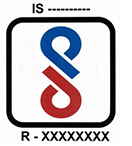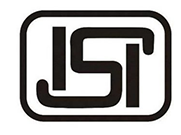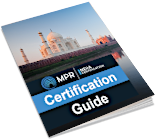your one-stop certification solution!
What is BIS Certification for India?

For export to India, manufacturers need BIS certification (ISI) or BIS registration (CRS) for certain products. The BIS Certification is obligatory for a large variety of products, so that they can be introduced and sold on the Indian market. BIS Certification India or BIS Registration issued by the Bureau of Indian Standards (BIS) ensure the quality, safety and reliability of products in accordance with Indian Standards (IS).
The Bureau of Indian Standards (BIS) is the national certification body in India under the umbrella of the Indian Ministry of Consumer Affairs, Food & Public Distribution. On April 1, 1987, it effectively replaced the Indian Standards Institution (ISI) organization and took over their functions.
BIS Certification (ISI) and BIS Registration (CRS) for Export to india
There are two main types of certifications regarding BIS compliance for India:
BIS-Certifications with Factory Inspection:
BIS ISI Certification (BIS Scheme I, ISI-Mark Scheme)
The Foreign Manufacturers Certification Department (FMCD) issues the BIS ISI certification for foreign manufacturers. Since 2000 this authority has been responsible for the BIS certificate under the umbrella of BIS. Rules and regulations under which ISI certification is granted are set out in the Foreign Manufacturers Certification Scheme (FMCS).
All products that comply with the FMCS regulations are marked with the ISI logo, also known as the “BIS Standard Mark” or “ISI Mark” in accordance with ISI Mark Scheme I.
BIS-Certification without Factory Inspection:
BIS CRS Certification (BIS Scheme II, BIS Registration)
The BIS registration under CRS (Compulsory Registration Scheme) was introduced in 2012 for 15 product categories. Since then, new products have been added in phases. Based on the regulations published by the Ministry of Electronics and Information Technology (MEITY), foreign products for the Indian market can also obtain BIS registration.
The BIS-CRS registration mainly covers products in the IT, electronics and lighting categories, however the list of products subject to registration is constantly being expanded. This makes BIS-CRS registration one of the most important and common registrations in India.
BIS Certification under Scheme X (as of 2026)
BIS Scheme X was envisioned as a certification framework in the context of India’s Machinery and Electrical Equipment Safety (Omnibus Technical Regulation, OTR) and aimed to introduce a BIS-based conformity assessment for certain machinery and electrical products (including those falling under HS code chapters 84 and 85). The regulation was initially scheduled to be implemented on 28 August 2025. In 2025, this deadline was postponed to 1 September 2026 through an amendment. In a further step, the effective date was subsequently suspended until further notice (“…to a date as may be notified…”), meaning there was ultimately no fixed implementation/enforcement date anymore.
On 14 January 2026, it was announced that BIS Scheme X is no longer required. As a result, any content referring to the mandatory implementation of Scheme X is no longer up to date.
Important: Regardless of the fact that Scheme X is no longer required, individual spare parts, components, or product variants may still fall under other BIS obligations (e.g., Scheme I or Scheme II). We therefore recommend having relevant items and/or bills of materials reviewed to ensure the correct regulatory classification.
Which products need BIS?
Since new products are constantly being added to the BIS catalog, it is recommended to clarify the certification requirements of the individual products with the authorities before attempting import to India.
The affected product groups include:
- Cables
- Safety Glass
- Automotive Rims
- Steel
- Cameras
- Power Supplies
- LED Lights
- Displays/ Monitors
The complete list of products currently covered by the mandatory BIS- certification and BIS-CRS registration can be found here.
BIS Registration Procedure according to BIS Standards
The BIS certification process always includes:
Preparation of application documents and application at BIS
Only with ISI: Factory Inspection
Product tests in accredited laborator
Issuance of certificate
Marking and labeling of the product
BIS certificates are valid between 1-2 years, depending on the relevant certification scheme. During this period additional tests may also be required to maintain the validity of the BIS certificate. The intervals at which the tests are required depend on the testing standards for the product type. Besides, BIS can randomly request manufacturers to submit their latest test reports to demonstrate compliance. Any change to the product or manufacturing process will require retesting to maintain the certificate validity.
Changes Requiring Notification Include the Following:
- Product design change
- Change to the product structure (for example adding another layer of material to the housing)
- Changes to a core component or “Key Components” (for example any electrical component)
- Raw material change
- Change of raw material suppliers
BIS Marking – ISI Mark and CRS Logo
After receiving the BIS certificate, you can mark your product. Initially, two types of markings were in use: the ISI mark for products certified under BIS-ISI, and the CRS mark for those under BIS-CRS.
BIS-CRS Logo (CRS-Mark) for BIS-Registration

BIS-ISI Logo (BIS Standard Mark) for BIS-Certification

Together with the marking license, the CM/L BIS license number (for BIS-ISI) or the R-number (for BIS-CRS) is also assigned. This will be a 7 or 8 digit number to simplify the identification of a product in the production plant.
AIR (Authorized Indian Representative)
The application for BIS approval must always be made through an
Authorized Indian Representative (AIR). This is a representative in India authorized by the manufacturer who acts as a local contact for the Indian authorities and is responsible for submitting applications.
MPR Services
Your One-Stop Certification Solution.
Our complete package for product certifications for India.
Personal consultant for all questions about BIS
Clarification of the certification requirements
Application preparation
We provide a local Authorized India Representative (AIR)
Preparation and support for the audit
Organization of testing
Advice on how to mark your products, if needed
Complete organization of the follow-up certification
Contact us!
 MPR India Certification – expert consulting and implementation of certification projects worldwide.
MPR India Certification – expert consulting and implementation of certification projects worldwide.
BIS Certification Overview
| Validity of the Certificate | 1-2 years (ISI = 1 year, CRS = 2 years) |
| Certification Estimated Timing | BIS-ISI Certification 6-8 months BIS-CRS registration: 2-3 months |
| Marking | Products covered under BIS-ISI must be marked with an ISI logo BIS-CRS: Products must be marked with the so-called BIS-CRS logo |
| Testing Required? | ISI & CRS: Yes |
| Factory Audit Required? | Only for BIS-ISI |
| Representative in the country | AIR (Authorized Indian Representative) required in all cases |
| Follow-Up Process | Follow-up inspections at the plant are not currently implemented. However, the authority may request product tests during the validity period of the certificate. |
BIS Certification FAQ
You can check our list of BIS-required products. You can also visit the Bureau of Indian Standards (BIS) website for an overview of products requiring registration according to BIS standards.
We recommend checking with BIS as Indian standards and regulations change frequently. We would be happy to assist you in this process.
In general, verifying BIS certification requirements solely based on HS codes is not recommended. Several tools, such as the European Commission’s Access2Markets or the Indian Customs Authority’s Icegate portal, may appear to offer such checks. However, based on our experience, the results from these tools are often inaccurate and therefore unreliable.
That said, there are specific areas where HS codes can be used to identify BIS certification requirements. For instance, steel products regulated under the BIS ISI scheme, are accompanied by official Indian government documents that list the relevant HS codes for straightforward reference.
Depending on whether an audit is required for your product certification, the process usually takes 2-3 months (without audit for BIS-CRS registration) or 6-8 months for BIS-ISI.
The BIS-CRS certificates are valid for two years. During these two years BIS may request random product audits.
BIS-ISI certificates are initially valid for one year only. However, when extending the validity of the certificates, a one-time renewal for up to five years is theoretically possible. In practice, most manufacturers renew their license annually.
Product testing for the certification is done according to specific IS standards. Therefore, we recommend that you review the relevant product standards and Indian regulations to ensure compliance. We will be happy to assist you if you have any questions.
The audit for the BIS certification (ISI) always takes place at the production site of the product. If production takes place at several locations, the plant where the last quality-assuring production step takes place must be audited.
Depending on the certification, products must be marked with the ISI-Mark, or the BIS CRS logo.
No, the information is provided in English on the Bureau of Indian Standards (BIS) website. Unless a consulting firm is hired to monitor changes that affect the compliance of their products, companies must track regulation changes on their own.
BIS CERTIFICATION VIDEO
Please enable cookies to enable embedded YouTube videos. For privacy-related details on data exchange through use of the videos as well as changeable cookie settings, please see the privacy policy page.
Client Testimonials
Please enable cookies to enable embedded YouTube videos. For privacy-related details on data exchange through use of the videos as well as changeable cookie settings, please see the privacy policy page.








